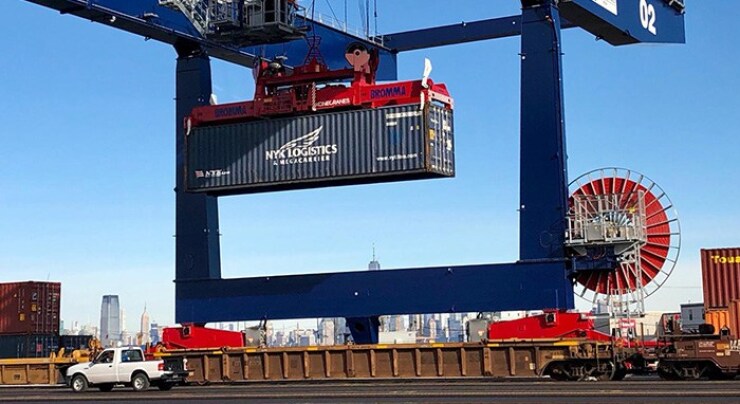
The biggest
On Tuesday, the International Longshoremen Association — a union that says it represents 85,000 maritime workers — launched strikes at ports from Maine to Florida and along the Gulf Coast to Alabama, Louisiana and Texas. By some estimates, the shutdown could cost the U.S. economy more than $3 billion a week in lost commerce.
Banks engage with the import-export sector in numerous ways, though most significantly by guaranteeing contracts between buyers and sellers from different countries. In these arrangements, banks are effectively providing a line of credit to buyers looking to purchase goods from overseas.
Last year, this type of
Banks facilitate this activity in several ways but the most common — and oldest — form is the use of agreements called letters of credit. According to the trade publication Documentary Credit World, roughly 100 U.S. banks have significant outstanding letters of credit, along with dozens more with smaller exposures.
Top issuers in this space include the biggest banks in the country, such as JPMorgan Chase, Bank of America, Citigroup and Wells Fargo. How significantly these and other groups are impacted by the strike will largely depend on the specific arrangements and how long the stoppage persists, said Tod Burwell, CEO of the Bankers Association for Finance and Trade, or BAFT.
"The biggest risk is disruption of supply chain flows, which will impact availability and cost of goods," Burwell said. "Depending how long the strike lasts, it could impact banks that provide trade finance to clients that import/export out of East Coast or Gulf ports due to increased risks of timely settlement, but that risk could fall on the underlying bank client depending on the structure of the financing arrangement."
Another risk for the banking sector is the knock-on effects the strike could have on related industries, such as trucking.
In an analyst note, Aron Bergman, vice president and senior credit officer for Moody's Ratings, said the shutdown could be particularly hard on smaller trucking companies that tend to rely heavily on loans and leases to finance their operations. Those loans are bundled into asset-backed securities, or ABS, many of which sit on bank balance sheets.
"The longer the strike's duration, the greater the revenue risk for trucking companies and ABS payments," Bergman wrote. "As the strike keeps freight at sea, trucking companies will be unable to transport goods, lowering revenue for [borrowers] and making it more challenging for them to make the contractual payments that underlie ABS."
The delinquency rate for trucking ABS had already been on the rise, even before the strike began, Bergman said. ABS borrowers are 30 or more days behind on loans representing more than 3% of outstanding collateral value, up from less than 2% in 2022.
The strike was brought on by a negotiation impasse between the union and the United States Maritime Alliance, or USMX, which represents port operators along the Atlantic and Gulf coasts. The union is seeking $5-an-hour annual wage increases for its next six-year contract, saying workers are entitled to a share of the profits that the ports reaped from the pandemic-era import boom.
The union has also taken a hard-line stance against automation at terminals, arguing that the technology will displace its members.
"We are now demanding a $5 an hour increase in wages for each of the six years of a new ILA-USMX Master Contract," ILA President Harold Daggett said at the onset of the strike. "Plus, we want absolute airtight language that there will be no automation or semi-automation, and we are demanding all Container Royalty monies go to the ILA."
On Tuesday,






